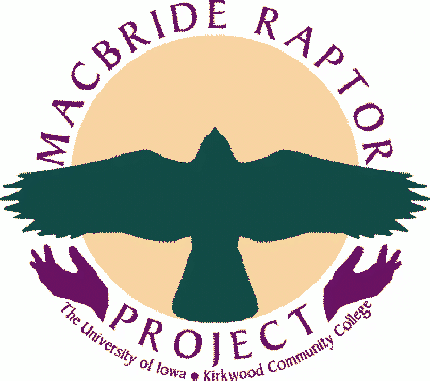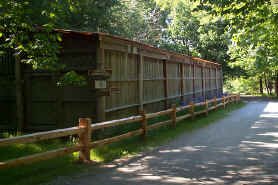
REHABILITATION
Each year the Macbride Raptor Project receives approximately 150 to 200 patients. Most of these birds have been injured by cars or have been illegally shot or trapped. Initial treatment of the injured bird occurs at Kirkwood's Animal Health Technologies program with the help of veterinarians and trained staff, as well as students. Continued treatment is provided by KCC Veterinary Technology students, MRP staff and trained volunteers.
 |
Those birds that have a chance for recovery are transferred to the flight cage at the Macbride Nature and Recreation Area where they receive physical therapy directed by MRP staff and conducted by trained volunteers. Some raptors we cannot save. However, about 40 percent make a full recovery. A few birds are left permanently crippled by their injuries and are placed with properly licensed zoos, nature centers, or other qualified facilities. Still others, with no chance of survival in the wild or prospect of placement, are euthanized. |
A raptor has an intensely wild and free spirit. To come to the aid of one of these birds is to give expression to a similar spirit within us. In this context, the successful recovery and return to the wild of a raptor that has fallen victim to a hunter, trap, or car, takes on a special significance. The rehabilitation work is symbolic of a deep concern for things wild and free. It is recognizing and taking responsibility for a small portion of the impact that we as humans have on the wildlife around us.
HELPING AN INJURED RAPTOR
|
The Macbride Raptor Project "MRP" provides care for injured raptors. Our licensed rehabilitators and veterinarians are on staff to diagnose, advise, and heal birds of prey. We advise anyone finding an injured raptor to place it in a box just slightly larger than the bird with a few small holes for ventilation. It is important NOT TO GIVE IT FOOD OR WATER. Allow the raptor to rest in the box, in a cool quiet place, until it can be delivered to MRP or picked up by a volunteer.
|